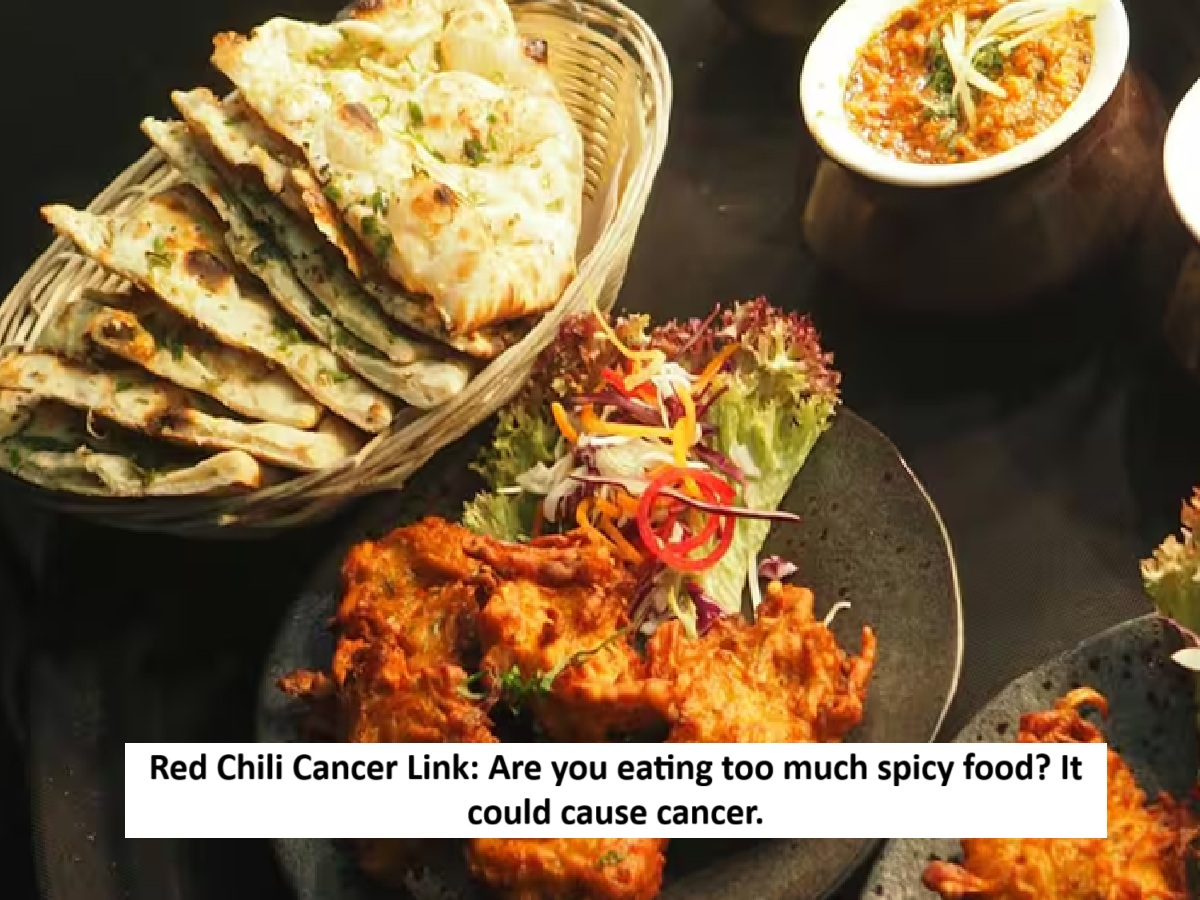
News Topical, Digital Desk : Cancer Risk From Spicy Food: People all over the world are fond of spicy food, be it Indian curry or Mexican salsa. Red chili peppers not only enhance the taste and heat of food, but also slightly speed up the metabolism. However, in the last few years, scientists have been trying to find out whether eating too much chili peppers regularly can increase the risk of certain cancers related to digestion. A study published in the journal Frontiers in Nutrition has examined this topic in detail. According to the research, the antioxidant properties present in chili peppers can be beneficial in small quantities, but excessive consumption can increase the risk of esophageal, stomach, and colon cancer. Colorectal cancer is the third most common cancer in India and is completely curable if treatment is started early.
How dangerous is eating too much chilli?
Capsaicin, the compound in chili peppers, is what gives them their spiciness. It's known for its pain-relieving, anti-inflammatory, and fat-burning properties. However, mixed results have emerged regarding its effects on cancer. Consuming large amounts of red chili peppers, especially raw or very spicy chilies, over a long period of time can increase irritation and inflammation in the digestive system. This inflammation can gradually damage cells, increasing the risk of cancer.
However, chili peppers, especially in moderation, are not harmful if the diet contains adequate vegetables, fruits, and fiber. Eating chili peppers with cooling foods like yogurt or cooking them can reduce stomach irritation.
Eating too much chili may increase the risk of stomach cancer
The study, published in Frontiers in Nutrition, included research on thousands of people around the world. The findings suggest that people who ate very spicy food daily or in large quantities were at increased risk for cancers of the digestive system. Mild to moderate chili consumption is harmless and may even offer some benefits due to the capsaicin. Eating too much chili peppers and smoking or drinking alcohol further increases the risk. The type of chili pepper consumed and the rest of your diet also affect risk.
benefits of eating chili
Cayenne pepper isn't harmful; in fact, it offers numerous benefits in appropriate amounts. It boosts metabolism, and capsaicin helps burn calories. It's also good for the heart; moderate consumption can have a beneficial effect on blood flow and cholesterol. It's also considered a rich source of antioxidants, with vitamin C, beta-carotene, and other compounds protecting the body from oxidative stress.
Read More: Want to get relief from migraine without medication? Make these small lifestyle changes today.
--Advertisement--

 Share
Share



